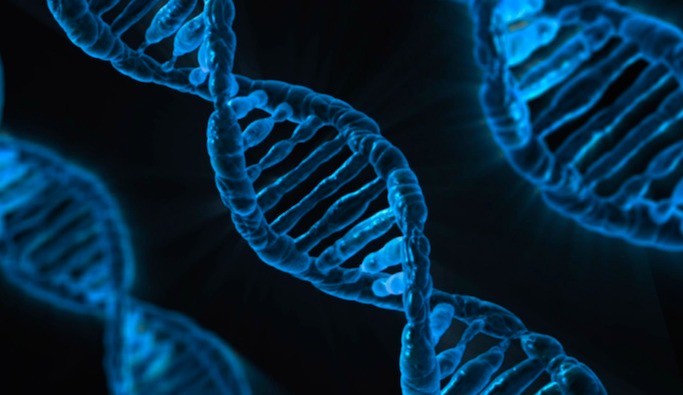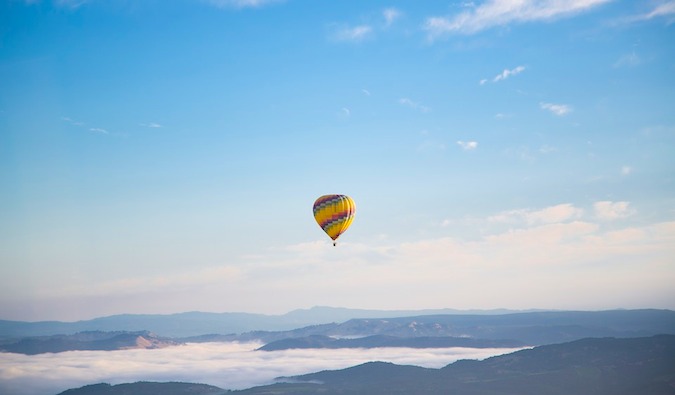The Scientific Discipline Of Wanderlust

Today, we’re doing something different. Last year, I stumbled across a publish of articles talking most recent findings most the hazard gene. Apparently, people who move a lot are predisposed to it because we’re hazard takers together with receive got this gene. I idea “Cool! Scientific proof my wanderlust is genuinely inwards my genes”! So when my friend Kayt told me most her novel majority The Art of Risk: The Science of Courage, Caution, together with Chance, that dealt alongside the subject, I idea it would endure wonderful to receive got her write an article all most the scientific discipline of wanderlust. I’ve known Kayt for years together with she’s i of the best writers I know. She’s someone I hold back upwardly to together with I’m excited to receive got her write for this website. So, let’s accept a suspension from our normal move articles, together with larn our nerd on!
When I was inwards college, an acquaintance, Dave, won a prestigious technology scientific discipline fellowship. When I congratulated him, he informed me that he was going to reject it. I was shocked. The enterprise offered him substantial funding for his enquiry addition a year’s remain inwards Italy. Why on public would he reject such an adventure?
“Why would I wish to go to Italy?” he replied when I asked him. “Everything I demand is correct hither inwards Pittsburgh.”
I don’t yell back I could receive got been to a greater extent than shocked if he had told me he was important alongside kittens. But he was deadly serious. He had been born together with raised most an hour’s drive from the city. He came to Pittsburgh for college together with thus stayed on for graduate school. He went on to enjoin me that he had never, inwards his 26 years, laid human foot exterior of the state of Pennsylvania. And he didn’t experience whatsoever sort of compulsion to produce so. I wanted to proper name at the idea of him giving upwardly a yr inwards Italy. And, I won’t prevarication — I genuinely idea he powerfulness endure insane.
Ten years later, Dave together with I ran into each other i time again — y'all guessed it — inwards Pittsburgh. When he asked me what I had been upwardly to, I started telling him of a recent trip to Colombia, consummate alongside autobus misadventures together with a soul bringing me a alive chicken when I offered to brand dinner. As I told the story, he looked real uncomfortable. At first, I couldn’t empathise why. Then it dawned on me: he was convinced that I was genuinely the insane one.
What drives to a greater extent than or less of us to forsake the comforts of abode together with explore the world? Is at that topographic point a scientific explanation for why to a greater extent than or less of us are slaves to our wanderlust, spell others are dead assault staying put?
As it turns out, the reply may lie, at to the lowest degree partially, inwards our DNA.

When it comes fourth dimension to accept a risk, our brains accept inwards all kinds of data most rewards, emotion, stress, potential consequences, previous experience, together with other factors together with set it all together to assistance us determine whether to accept a saltation — or remain put. That’s whether we’re going after to a greater extent than or less tasty food, chasing a potential mate, or traveling to exotic locales.
And the encephalon regions that grok all those factors are fueled, inwards part, past times a particular chemic called dopamine. You may receive got heard of dopamine before. Some telephone proper name upwardly it the “pleasure” chemical. And sure nosotros all larn large hits of it when nosotros larn a gustation of something proficient (literally or figuratively). Scientists receive got constitute that having lots of dopamine inwards sure parts of the encephalon tin Pb to to a greater extent than impulsive, risky behaviors. And to a greater extent than or less people receive got all that extra dopamine because they possess a specific variant of the DRD4 gene, a cistron that codes for a unmarried type of dopamine receptor, called the 7R+ allele.
Numerous studies receive got linked the 7R+ variant to a broad arrive at of behaviors. People alongside this variant are much to a greater extent than probable to brand a fiscal adventure inwards hopes of a bigger payout. They are to a greater extent than probable to receive got a greater publish of secual partners — together with participate inwards one-night stands, too. They are to a greater extent than probable to larn addicted to drugs or alcohol. They fifty-fifty throw caution to the air current when engaged inwards that nursing abode card-game favorite, bridge. And they may also endure to a greater extent than probable to move to distant lands.
Justin Garcia, an evolutionary biologist at Indiana University’s Kinsey Institute, says that the DRD4 cistron is real of import from an evolutionary standpoint. He says its 7R+ variant was probable selected for (i.e., caused greater reproductive success) tens of thousands of years agone equally humans started their peachy migrations out of Africa together with into other parts of the world. Garcia argues that all that extra dopamine inwards the encephalon may receive got helped motivate prehistoric human to venture from home, explore, together with seek novel territories for mates, food, together with shelter.
To venture from home. To seek novel territories. To explore. And yes, to wander. So could something similar a uncomplicated DRD4 variant explicate wanderlust? Or clarify why I encounter move equally an chance spell someone similar Dave views it equally a terrible risk?
Though biological scientific discipline never plant lone (environmental factors tin tweak our genes inwards wild together with wonderful ways, too), Garcia says that DRD4 may explicate to a greater extent than or less of these differences. His run looks at the 7R+ allele together with how risky behaviors may limited themselves inwards dissimilar situations, together with he’s constitute that it is linked to people wanting to force the envelope inwards interesting ways.
“One of the questions nosotros receive got is how much overlap nosotros powerfulness encounter inwards risky behaviors. If y'all are an economical hazard taker, are y'all also a binge drinker? If y'all modify your drinking behavior, are y'all to a greater extent than probable to outflow out of airplanes or cheat on your spouse?” he asks. “There’s to a greater extent than or less bear witness that, if y'all receive got this allele, it needs to endure expressed inwards to a greater extent than or less mode behaviorally. These people alongside the 7R+ receive got a sure neurobiological predisposition that requires them to abide by to a greater extent than or less domain that allows them to larn their kick.”
“So i of those domains could endure the form of crazy wanderlust nosotros encounter inwards to a greater extent than or less people?” I ask.
“It could be. We don’t receive got real clear answers at this point. But we’re seeing that to a greater extent than or less people are just risky inwards all areas. Lay people powerfulness state those people receive got ‘addictive’ personalities. They ever seem to endure doing genuinely impulsive things. But nosotros also encounter that others receive got these predispositions for risk, together with they abide by [just] i domain to limited it in. Travel could endure one. But what domain an private is going to selection to limited that hazard is real much going to endure driven past times environmental factors together with social context.”
“So what is this boot nosotros are trying to get, exactly?”
“People speak most DRD4 inwards damage of risk-taking a lot. But there’s been a force to modify that. Because nosotros don’t know if it’s genuinely most taking risks per se, or most putting yourself inwards a province of affairs where y'all tin interact alongside novel stimuli together with environments, which stimulates the nervous organization inwards a item way,” he says. “Some people seem to genuinely demand that novelty, together with they seek it out wherever they tin larn it.”

And travel, certainly, offers i the chance to engage alongside novelty. That’s i of the things that I honey most it. The powerfulness to exit together with explore, to experience completely alien for a few moments. To force myself, at times, to my limits thus I tin connect together with communicate. To revel inwards novel landscapes together with immerse myself inwards a unusual culture.
It’s tardily to believe that Dave’s encephalon just isn’t gear upwardly inwards the same mode equally mine. Perhaps my encephalon needs the boot I larn from exploring the unknown — together with his only doesn’t. All of a sudden, I receive got the compulsion to compare our DRD4 variants. Maybe at that topographic point is a story at that topographic point that volition explicate why I encounter move equally a gift, something I can’t alive without, together with Dave wants to avoid it at all costs.
But J. Koji Lum, an anthropologist at Binghamton University together with frequent collaborator of Garcia’s, puts me dorsum inwards check. Genes, he tells me, solely enjoin role of the story if we wish to empathise addiction, risk-taking, or wanderlust.
“DRD4 is i cistron and, of course, its contribution to whatsoever complex demeanour is going to endure small. But those small-scale differences add together up,” he explains. “To a sure extent, assessing hazard is just running an algorithm inwards your head. The dissimilar genetic variants hateful that algorithm is running at slightly dissimilar levels inwards dissimilar people. That’s where all of this comes together: people are running slightly dissimilar algorithms that assistance define whether or non they volition accept a risk. And, ultimately, over time, that i small-scale departure inwards the algorithm ends upwardly inwards real dissimilar lives lived.”
Dave together with I receive got sure lived dissimilar lives. He, equally of a final Facebook check, is nevertheless inwards Pittsburgh. I’m instantly dragging my kids across the globe whenever I can. That is a definite difference.
So side past times side fourth dimension y'all hold back at a die-hard traveler — the human who decides to quit his chore together with backpack across Eastern Europe for a year, or the adult woman who uproots her household unit of measurement to start a small-scale schoolhouse inwards Namibia — know they aren’t crazy. They powerfulness just procedure hazard a piddling differently than y'all produce or endure wired for novelty. After all, to a greater extent than together with more, scientific discipline is showing that wanderlust together with the wish to seek out the unknown may be, at to the lowest degree inwards part, written inwards our genes.
Kayt Sukel is a traveler, writer, together with scientist who wonders why nosotros produce the things nosotros do. Her commencement majority dealt alongside the scientific discipline of honey together with her novel majority The Art of Risk: The Science of Courage, Caution, together with Chance deals alongside why nosotros accept risks. I read it on my flying to Commonwealth of Australia together with constitute the scientific discipline intriguing. It reminded of the Power of Habit (another favorite of mine). I highly recommend the book. Kayt tin also endure constitute on Twitter together with her blog.
Sumber https://www.nomadicmatt.com
0 Response to "The Scientific Discipline Of Wanderlust"
Posting Komentar